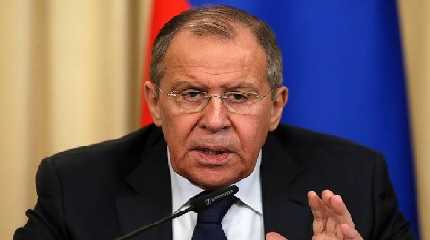
MOSCOW, Oct 14 (NNN-PRENSA LATINA) — Russian Foreign Minister Sergey Lavrov said that the West used the methods of diplomatic terror against developing countries to get a resolution against Russia adopted at the UN General Assembly.
Western nations threatening developing countries with all kinds of punishments to vote against referendums in the Donbas republics, as well as in the Zaporozhie and Kherson regions, Lavrov announced Thursday to Russian television’s Pervi Kanal.
Only with this undisguised blackmail, these threats managed to secure the result, the Minister specified.
We understand everything very well, and the claim of the US that they do not convince anyone, everyone votes for himself is a lie, and they also know it, Lavrov added.
The UN General Assembly adopted a resolution against Russia on the referendums in the republics of Donbas, Zaporozhie and Kherson regions, as well as on the situation in Ukraine by 143 countries voted in favor, five voted against and 35 abstained.
Russia, Belarus, the Democratic People’s Republic of Korea, Nicaragua and Syria voted against.
Among those abstaining were China, India, South Africa, as well as Armenia, Kazakhstan, Kyrgyzstan, Tajikistan and Uzbekistan.
To pass a resolution, it had to be supported by at least two-thirds of the voters.
Meanwhile in ASTANA, Kazakhstan, speaking at the Conference on Interaction and Confidence-Building Measures in Asia (CICA) Summit, Russian Pres Vladimir Putin called for the removal of the barriers to the global supply chains.
He said that his country is doing everything possible to provide critical goods to the countries that needed them.
The president referred to the real hunger threat amid the volatile prices of energy, food, fertilizers, raw materials, and other commodities.
He added that this leads to the deterioration of the quality of life in both developed and developing countries.
Russia advocated for creating an equitable and indivisible security system based on the universal and recognized principles of International Law in the United Nations Charter, and along with other Asian States, it is doing everything possible to achieve it, he said.
The Astana meeting is the sixth summit of the CICA, an organization founded at Kazakhstan’s initiative in 1992 and it is responsible for creating conditions for dialogue, decision-making, and implementing measures to ensure security in Asia.




